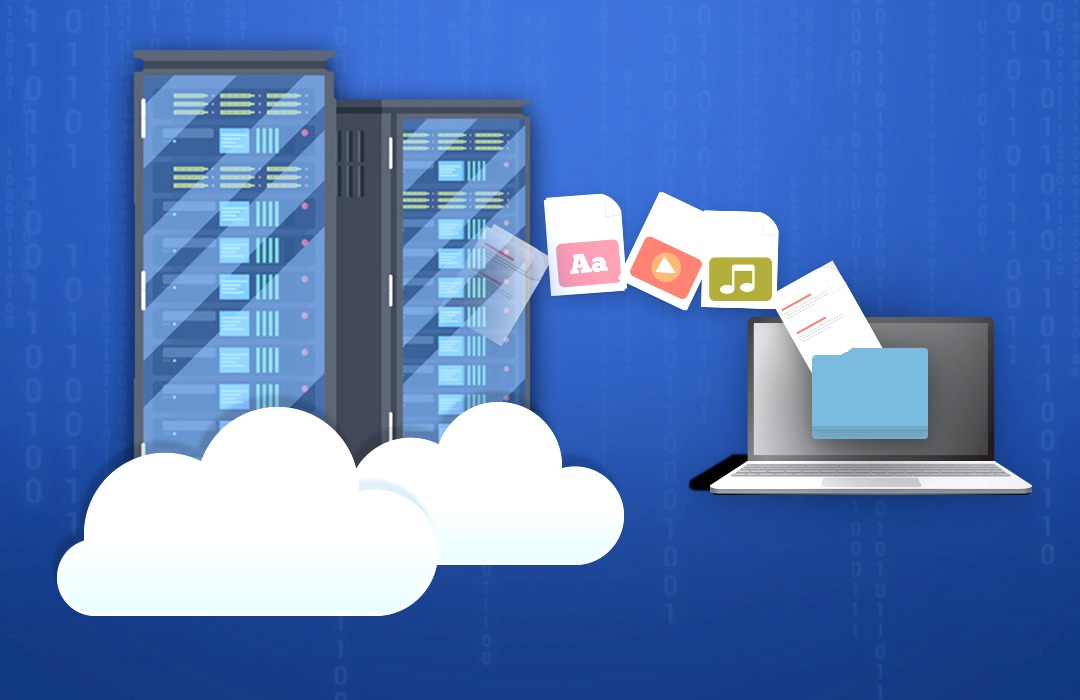
Cloud ComputingWritten By: Suman Kumar Paul
In recent years, the virtual business ecosystem has evolved at an exponential rate. Businesses are perpetually open to the risk of losing data. Businesses deal with large amounts of data and storing them in the cloud is the most affordable option.
Moreover, cloud computing offers flexibility, scalability, and cost-effectiveness which excites brands in opting for virtual technologies over Disaster Recovery techniques and infrastructure.
What is Cloud Backup?
Cloud backup is cloud-based software that allows businesses to automatically backup and store important data, apps, virtualization software for disaster recovery purposes. Cloud backup protects your data and ensures the integrity of your business.
Cloud backup is typically developed around a locally hosted client program that works in the background as per automated scheduling. The program captures, encodes, secures, and transfers data to the servers of the service provider. The vendor offers both full and incremental backups to optimize resource and bandwidth allocation.
Why Use Cloud Backup?
• Quick Data Recovery - The data backed up by cloud servers may be immediately recovered, allowing a business to gain access to the needed files or systems.
• Safeguarding Data and Apps - Businesses are shielded against immediate weather disruptions and blackouts by keeping crucial data and apps off-site.
• Flexible Storage - Unlike standard backup methods, in which data is kept permanently on an HDD or tape with limited capacity, cloud-based backup can be readily scaled up or down.
• Reliable Disaster Recovery - Backup cloud services offer consumers instantaneous connectivity to important data and apps in the case of disaster, whether natural or man-made.
How Cloud Backup Works?
Generally, the cloud backup procedure involves cloning data at the development site and sending it to a faraway backup platform where it can be quickly retrieved for disaster recovery needs. Because of its excellent flexibility, ease of implementation, and on-demand customization, most businesses prefer cloud backup solutions.
Perform the following activities to set up a cloud backup process:
• Get a cloud backup subscription.
• Configure and install the program on your business's IT infrastructure.
• Select the files, directories, and apps your business wants to backup.
Once the backup setup is done, your cloud backup system will be ready to operate. Most cloud backup solution providers in India offer firms with backup schedule customization, bandwidth allocation methods, and come with flexible integration capabilities. After the successful integration of cloud-based backup solutions businesses no longer need to be concerned about data backup. All your important data will be automatically backed up as per the backup scheduler.
Types of Cloud Backup
Multiple cloud backup methods can seamlessly integrate into an organization's operational data security workflow. Most cloud backup providers offer businesses to select the backup technique that best suits their objectives and operations; therefore, it is important to recognize the differences between them.
• Full Backup - The technique offers the highest level of security as it copies the whole data with every backup initialization. When a backup is begun, a full backup copies the whole data collection. As a result, they offer the highest level of security. But, most firms are unable to execute complete backups daily as it consumes more time and data storage capacity.
• Incremental Backup - The above technique only backups data that has changed or been updated since the previous backup. This approach saves time and storage space, but it makes full data recovery more complex. As it consumes minimal resources, incremental backup is highly preferred by businesses.
• Differential Backup - It is quite similar to incremental backups but it eliminates the challenge of complex restorations that we usually face while using incremental backups.
What is Data Archiving in Cloud Backup?
Businesses need to opt for cloud backup services with in-built data archiving capabilities. Archiving data is different from daily data backup. Archived data is information that is no longer needed but should be stored. Ideally, the data must be excluded from the automatic backup stream as it remains unmodified and maximizes the number of backup data transfers needlessly.
Most online cloud providers offer archiving capabilities in addition to backup solutions. In general, this form of storage is more affordable than data storage employed for active backups.
Conclusion
Deploying a comprehensive cloud-based backup solution guarantees that your business data is always safe, can be accessed from anywhere at any time, and can be recovered quickly in the case of an emergency. One can simply customize the virtual environment using cloud backup technologies to meet the demands of your firm without spending additional costs.
We provide a robust and user-friendly VM cloud backup solution that incorporates several innovative features to boost backup performance, facilitate on-demand scaling, and enhance recovery speed, therefore saving you both time and money. You no longer have to be concerned about the maintenance and management of your cloud environment with VTPL's Backup & Restoration solutions.
TAGS - best cloud solution cloud solution company in kolkata cloud computing best cloud solution india leading cloud solution provider best cloud solution provider
See Also - Privacy is Dead, and Social Media Holds the Smoking Gun